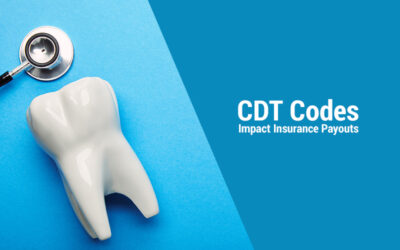- Why Digital RCM Tools Matter for Dental Practices
- Top RCM Tools for Dental Practices in 2026 – Leveraging the Digital Advantage
- Integrating AI, Automation and Human Expertise for Smarter RCM
- Choosing the Right RCM Tools for Your Dental Practice
- Building a Future-Ready Dental Revenue Cycle with a Hybrid Model
How can dental practices stay profitable and patient-focused in 2026, when costs are rising, staff are stretched thin, and administrative demands keep growing?
According to recent reports, dentists could be facing a challenging year in 2026 as the demands of running a modern dental practice continue to grow, from managing escalating costs, stagnant insurance reimbursements, and staffing shortages to meeting higher patient expectations.
The key to navigating these challenges lies in the smart integration of technology—especially artificial intelligence (AI). AI empowers dental practices with actionable data insights, enabling faster and more informed decisions. Digital practice tools also automate time-consuming administrative tasks like scheduling, patient communication, and claims management, allowing teams to focus more on patient care and practice growth.
Ready to optimize your dental RCM for 2026?
Talk to our experts about AI-driven billing and automation solutions.
Let’s explore the top RCM tools transforming dental billing and revenue cycle management (RCM) in 2026.
Why Digital RCM Tools Matter for Dental Practices
According to the American Dental Association (ADA), administrative inefficiencies are among the top reasons for revenue leakage in dental practices.
The financial success of any dental practice depends heavily on its ability to manage the revenue cycle efficiently — from verifying patient eligibility to collecting payments. However, the process comes with several challenges:
- Complex payer requirements and frequent code updates
- Increasing patient financial responsibility due to high-deductible plans
- Manual workflows that slow down billing and increase errors
- Absence of real-time visibility into claim and payment trends
Manual billing processes and outdated systems result in inefficient workflows, data entry errors, and slow claim submissions. Inadequate eligibility checks, coding errors, and incomplete documentation lead to lead to costly denials and delayed reimbursements.
Without modern practice tools to automate and validate billing data, dental professionals risk losing revenue, wasting staff time, and creating stresses for both patients and providers. Modern RCM tools tackle these issues head-on — using automation, analytics, and AI to simplify processes and give dental practices a clear picture of their financial health.
Top RCM Tools for Dental Practices in 2026 – Leveraging the Digital Advantage
Here’s a look at the best RCM software dental practices should consider in 2026:
Real-Time Eligibility and Benefits Verification Tools
One of the biggest causes of claim delays and denials is incorrect or outdated insurance information. Integrated with RCM, automated eligibility and benefits verification software instantly confirms a patient’s coverage, co-pay, deductible, and benefit limits before the visit and alerts to prior authorization (PA) systems. Electronic PA solutions help practices submit requests directly to payers, track their status in real-time, and receive faster responses. By enabling staff to identify coverage issues early and educate patients about their financial responsibilities, these tools improve front-end accuracy, reduce claim denials, and enhance the overall patient experience.
- AI-Driven Billing and Coding Software
Automation has transformed how dental claims are created, reviewed, and submitted. AI-powered dental billing software automatically assign the right codes, flag missing documentation, and even predict claim denials before submission. AI in dental billing and coding integrate natural language processing (NLP) to read clinical notes, ensuring that every service is properly coded and supported by documentation. This reduces manual workload and improves accuracy, resulting in fewer rejections, faster reimbursements, a cleaner revenue cycle, and more time to focus on patient care.
- Denial Management and Predictive Analytics Tools
Denied claims are one of the biggest revenue drains for dental practices. Traditional denial management takes a reactive approach—fixing issues only after rejections occur—which delays payments, increases administrative work, and disrupts cash flow.
Predictive analytics in dental RCM reverses the approach to denial management. By using AI and data analytics, practices can detect potential red flags before claims are submitted. These tools identify payer-specific patterns—like missing modifiers or documentation gaps—so teams can adjust claims to meet each payer’s requirements.
By learning from historical denial data, predictive systems help providers correct issues upfront, reduce denials, and speed up reimbursement. Over time, this creates a valuable knowledge base that improves first-pass resolution rates and strengthens payer relationships. In short, predictive denial management turns a reactive process into a proactive strategy for protecting revenue.
- Automated Payment Posting and Patient Collection Tools
Manual payment posting can be tedious and error-prone. Automated payment posting systems streamline this process by electronically reconciling Explanation of Benefits (EOBs), updating accounts, and identifying discrepancies for review.
Moreover, digital patient payment collection tools make it easier for patients to pay through online portals, automated text messaging with payment links, and integrated platforms with features like payment plans and AI-powered chatbots. This not only improves collection rates but also enhances patient satisfaction and trust.
- RCM Dashboards and Financial Reporting Analytics
Visibility is key to effective revenue management. Advanced RCM dashboards provide real-time visual insights into actionable metrics such as days in A/R, denial rates, and collection ratios. By aggregating data from the entire billing lifecycle, these tools provide valuable information about the organization’s financial health. These tools leverage AI and machine learning to forecast future challenges, like identifying potential coding denials before they occur.
Customizable reports allow practice leaders to monitor performance, identify trends, and make data-driven decisions to improve financial performance. With data analytics, practices can move from reactive revenue recovery to proactive revenue optimization.
- Compliance and Audit Readiness Tools
Staying compliant with payer rules and HIPAA regulations is critical. Audit-readiness tools ensure that your documentation, coding, and billing processes meet regulatory standards.
These systems track payer updates and store audit trails, making it easier to respond to compliance reviews or payer audits. For dental practices, such tools reduce the risk of penalties or repayment demands.
Integrating AI, Automation and Human Expertise for Smarter RCM
The future of RCM lies in the collaboration between human expertise and intelligent automation. Despite the advancements in technology, human expertise remains irreplaceable for critical RCM functions that require nuanced judgment, empathy, and strategic thinking.
Intelligent automation, including Artificial Intelligence (AI), Machine Learning (ML), and Robotic Process Automation (RPA), transforms RCM by handling high-volume, repetitive, and rule-based tasks such as claim scrubbing or eligibility checks with speed and accuracy. The key benefits of technology-driven dental RCM are:
- Cleaner claims: Automation spots missing codes or errors before submission, helping reduce denials.
- Instant eligibility checks: AI practice tools can verify insurance details in seconds, avoiding coverage surprises and delays.
- Faster payment posting: RPA matches payments to claims automatically and flags underpayments or mismatches.
- Smarter insights: Machine learning helps predict which claims might get denied so teams can fix issues early.
- More time for patients: With routine tasks automated, staff can focus on patient care and problem-solving.
- Easier to scale: Automation helps your practice handle more claims without adding extra administrative work.
AI models also learn continuously from payer behavior, adapting to policy changes and improving prediction accuracy over time.
But AI tools don’t replace your billing staff — they empower them by allowing them to focus on resolving complex issues and improving patient communication. Human expertise remains essential:
- Complex Decision-Making: Human professionals are necessary for navigating complex denial appeals, non-standard billing scenarios, and interpreting evolving regulatory requirements where AI lacks contextual reasoning.
- Patient Interaction: Empathy and interpersonal skills are crucial for sensitive interactions with patients, such as financial counseling, explaining complex bills, and resolving disputes. It builds trust and satisfaction and improves patient collections.
- Strategic Oversight: Humans provide essential oversight to monitor AI systems for biases or errors, ensuring compliance and ethical decision-making that aligns with organizational values.
Dental practices that adopt AI-powered RCM systems in 2026, while maintaining a human-in-the-loop approach, can expect faster claim turnaround, fewer denials, and stronger financial performance.
Choosing the Right RCM Tools for Your Dental Practice
Before investing in new technology, dental practices should consider these key factors:
- Scalability: Can the system grow with your practice?
- Integration: Does it connect seamlessly with your EHR and other tools?
- Dental-specific capabilities: Is it tailored for dental coding and payer rules?
- Vendor support: Does the provider offer strong onboarding and customer service?
Selecting the right tool and partner can ensure your transition to automation is smooth, compliant, and matches your long-term goals.
Building a Future-Ready Dental Revenue Cycle with a Hybrid Model
In 2026 and beyond, thriving dental practices will rely on smart, integrated RCM tools that combine automation, analytics, and human expertise. Adopting this hybrid approach today can help boost financial performance, enhance staff satisfaction, and build lasting patient trust
Explore our dental revenue cycle management services today.



